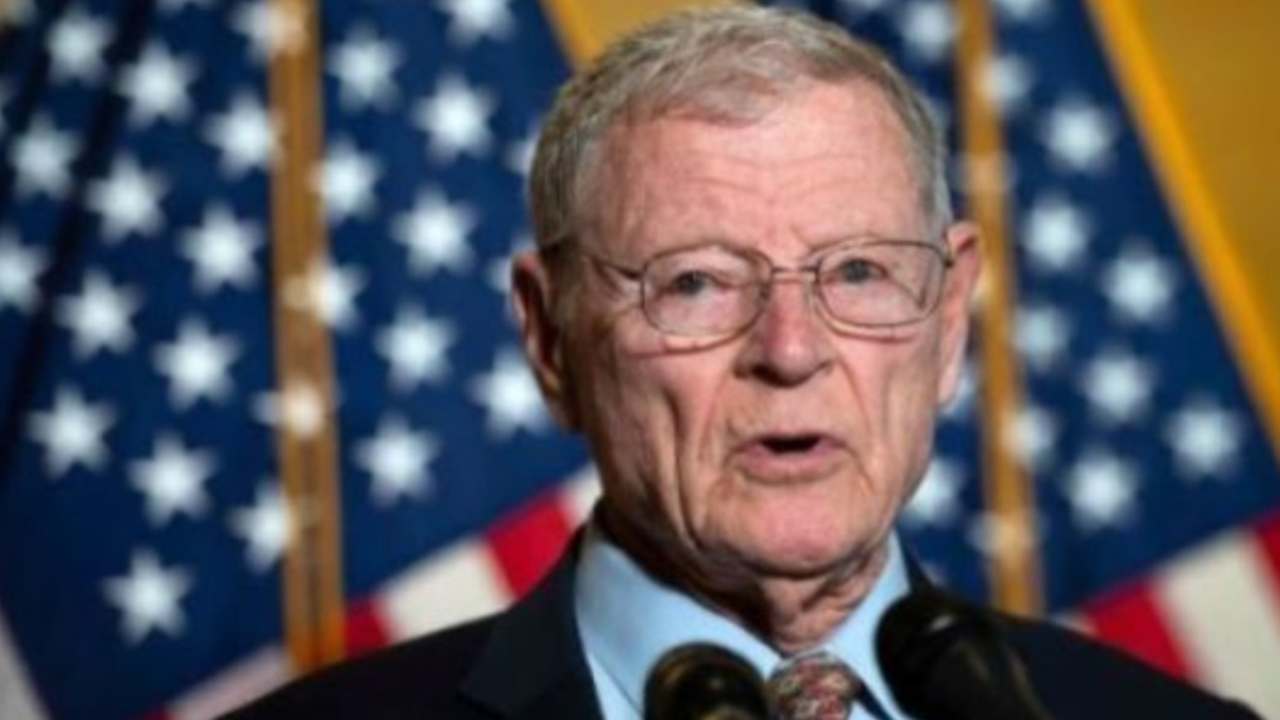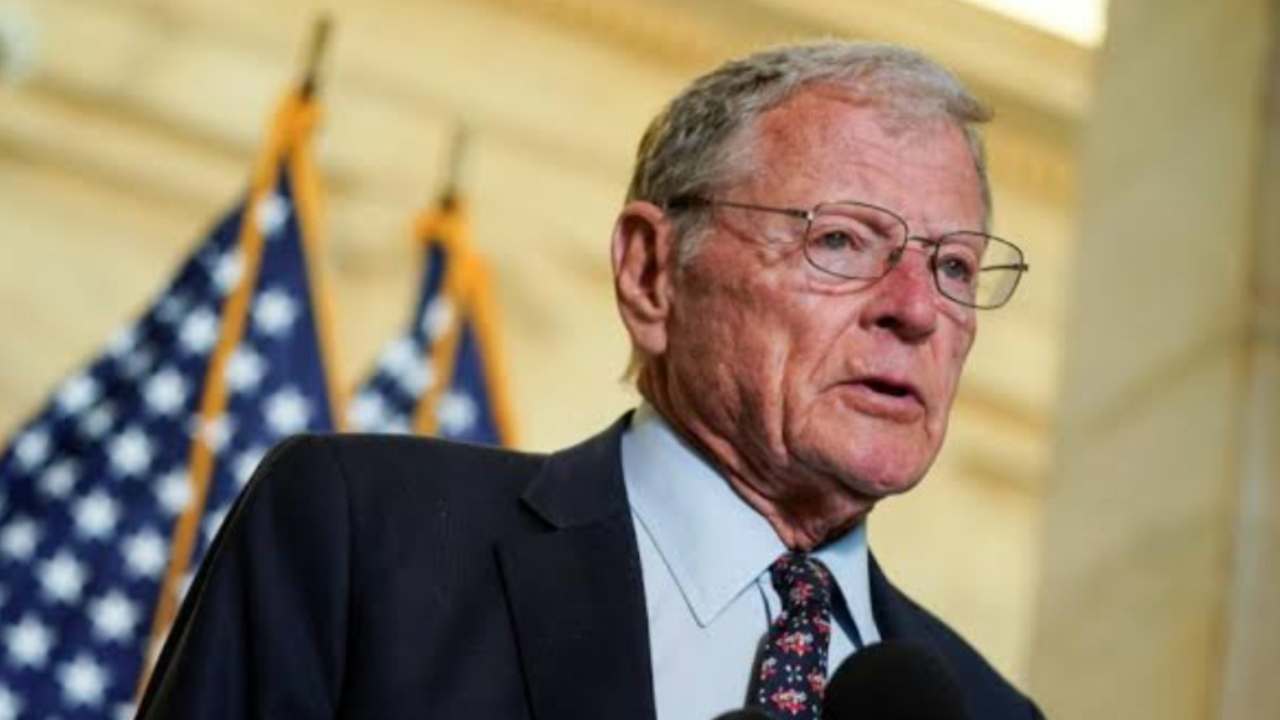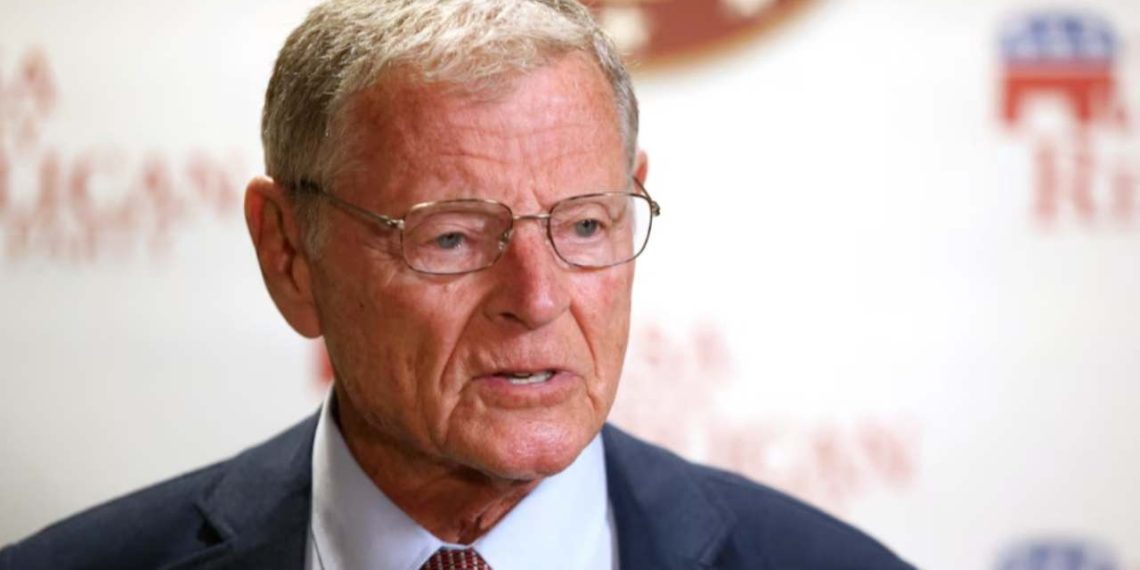James Inhofe’s passing marks the end of an era in U.S. politics, particularly in conservative circles and discussions surrounding climate change. His stance on climate change, often controversial, highlighted significant ideological divides during his tenure in Congress.
“He passed peacefully, surrounded by his wife Kay, and his three surviving children, Molly, Jimmy and Katy,” the statement said.
His career was marked by both his political achievements and personal pursuits, such as his aviation adventures and tenure as Tulsa’s mayor.
His long service in Congress, especially in the Senate, left a lasting impact on Oklahoma and national politics, despite the controversies surrounding his views on climate change and other issues.

James Inhofe indeed garnered a reputation as a staunch conservative in the U.S. Senate, known for his strong opinions and often sharp criticisms of political opponents.
His tenure as chairman of the Senate Environment and Public Works Committee underscored his influence on climate change policy from a Republican perspective, reflecting his views on environmental regulations and global warming.
“You say something over and over and over and over again, and people will believe it and that’s their strategy,” he said of environmentalists, scientists and public officials who argued that manmade emissions had altered the planet’s climate.
James Inhofe’s approach to climate change was notably controversial and reflected his skepticism towards scientific consensus on the issue.
His comparison of environmental advocacy strategies to the tactics of the Third Reich, as well as his characterization of the EPA, underscored his firm stance against what he perceived as overreach in environmental regulations.
His Senate floor actions, such as tossing a snowball to dispute global warming, became symbolic of his skepticism towards climate science, contrasting sharply with viewpoints emphasizing scientific evidence supporting climate change.

“You can believe NASA and you can believe what their satellites measure on the planet, or you can believe the senator with the snowball,” Whitehouse said.
James Inhofe’s opposition to clean air standards during the Clinton administration and his book “The Greatest Hoax” highlight his persistent skepticism towards climate change science.
His viewpoint, sometimes framed in religious terms as a conservative Christian, underscored his belief that concerns over global warming were exaggerated or misrepresented, aligning with his broader political and ideological stance on environmental policies.
“My point is, God’s still up there,” Inhofe said. “The arrogance of people to think that we, human beings, would be able to change what He is doing in the climate is, to me, outrageous.”




